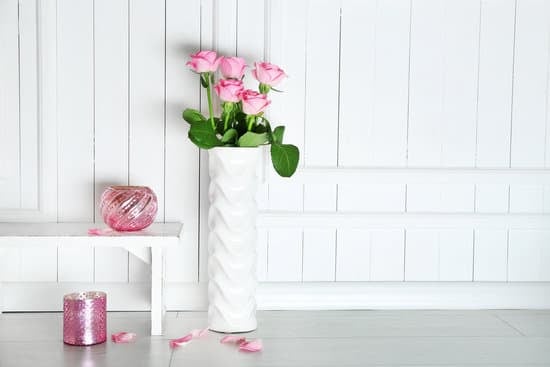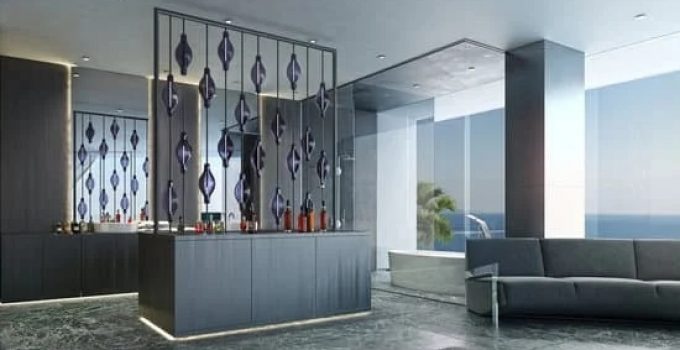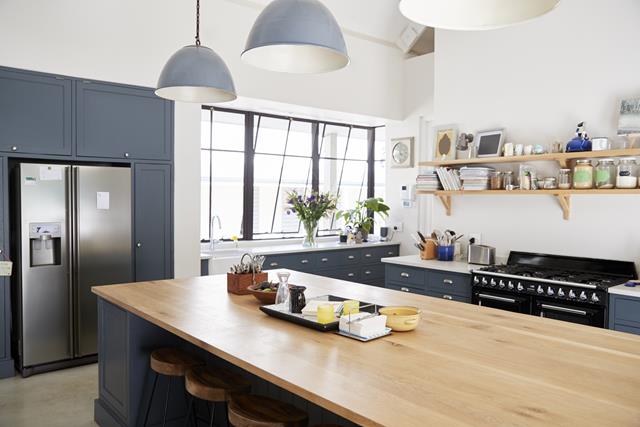Moving into a new home is an exciting time, filled with endless possibilities to transform a house into a personalized sanctuary. One of the key elements in this process is establishing a clear vision for your new home decor. From choosing a style that resonates with you to deciding on a theme that ties everything together, knowing how to decorate your new home can be a thrilling adventure.
Before diving into the world of interior design, it is essential to set a budget for decorating your space. Understanding how much you can afford to invest in furniture, decor pieces, and renovations will help guide your decisions and prevent overspending. With a well-defined budget in place, you can confidently move forward in selecting essential furniture pieces that will not only enhance the functionality of each room but also reflect your personal style.
As you embark on this decorating journey, remember that personal touches are what truly make a house feel like home. Whether it’s incorporating sentimental items, family heirlooms, or custom artwork, infusing your personality into your decor choices will create a space that is uniquely yours. By following these steps and embracing DIY projects, mastering color schemes, and curating stylish storage solutions, you can effortlessly elevate the ambiance of your new home while staying true to who you are.
Budgeting Basics
When it comes to decorating your new home, one of the essential aspects to consider is establishing a budget. Setting a budget will help you prioritize where to allocate your funds and ensure that you stay within financial limits while still achieving the look you desire.
The first step in creating a budget for home decor is to determine how much money you can comfortably spend without straining your finances. Assess your overall financial situation, including any existing expenses, savings goals, and potential future costs.
Once you have a clear picture of your financial standing, start researching the costs associated with decorating your new home. Consider factors such as furniture, paint, decor items, lighting fixtures, and any necessary renovations or repairs.
Make a list of all the items you need to purchase or tasks that need to be completed and assign each one a tentative cost. This will give you an approximate idea of how much money you will need to allocate for each aspect of decorating your new home.
To avoid overspending, it’s crucial to prioritize your purchases based on what is most important to you in terms of functionality and style. Look for ways to save money without compromising on quality by exploring discounted furniture stores, shopping during sales events, or considering pre-owned furniture options. Remember that budgeting for decorating your new home is all about making smart choices that allow you to create a space that reflects your personality and preferences without breaking the bank.
| Creating a Vision | Establishing the Style and Theme for Your New Home Decor |
|---|---|
| Budgeting Basics | How to set a budget for decorating your new home |
| Essential Furniture | Must-have furniture pieces for every room in your new home |
Essential Furniture
When moving into a new home, one of the most important aspects to consider is the essential furniture needed to make each room functional and cohesive. From the living room to the bedroom, having the right pieces can truly transform a space. Here are some must-have furniture pieces for every room in your new home:
Living Room
The focal point of any living room is typically the sofa. Choose a comfortable and stylish sofa that fits the size of your space and accommodates your household’s needs. Pair it with a coffee table for practicality and style. Additionally, adding accent chairs, side tables, and a media console can enhance the functionality and aesthetics of your living area.
Dining Room
In the dining room, a dining table and chairs are essential. Select a dining set that suits your style preferences and fits comfortably in the designated dining space. Consider additional storage options like a buffet or sideboard for extra space to store tableware or display decor.
Bedroom
For the bedroom, focus on investing in quality pieces like a sturdy bed frame, comfortable mattress, and bedside tables. A dresser or chest of drawers will provide ample storage for clothes and accessories. Adding a cozy rug, accent chair, or vanity can also elevate the overall look of your bedroom.
By strategically choosing essential furniture pieces for each room in your new home, you can create functional spaces that reflect your personal style and meet your everyday needs. Consider mixing different textures, materials, and styles to add visual interest while ensuring that each piece serves a purpose. Experiment with furniture placement to optimize flow and make the most out of your living space while still showcasing individuality throughout all rooms – making it feel like home from day one.
Color Scheme Mastery
When it comes to decorating your new home, choosing the perfect color palette for each room is key in setting the right ambiance and atmosphere. Whether you prefer a calming and neutral aesthetic or bold and vibrant hues, selecting the right colors can make a big impact on the overall look and feel of your living space.
Before you start painting or buying decor items, take some time to consider the mood you want to create in each room and how different colors can help achieve that.
One important factor to keep in mind when deciding on a color scheme for your home is how natural light affects colors throughout the day. Rooms with ample natural light can handle darker shades without feeling too dim, while spaces with limited sunlight may benefit from lighter tones to create a brighter and more spacious feel.
Additionally, consider the architectural features of each room when selecting colors – cool tones like blues and greens can help visually expand smaller rooms, while warm tones like reds and oranges can add coziness to larger spaces.
To assist in selecting the right color palette for each room, create a mood board with swatches of paint colors, fabric samples, and inspiration images that reflect the style and theme you want to achieve. This visual reference will help you see how different hues work together and ensure a cohesive look throughout your home decor. Don’t be afraid to mix and match complementary colors or experiment with bold accents to add personality and interest to your living space.
| Tips for Choosing Color Palette | Benefits |
|---|---|
| Create a mood board with swatches of paint colors | Helps visualize how different hues work together |
| Consider natural light in each room | Determines whether darker or lighter shades are suitable |
Personal Touches
When it comes to decorating your new home, one of the most important things to consider is how to incorporate your personality into the decor. Your home should be a reflection of who you are, so adding personal touches can make all the difference in creating a space that feels uniquely yours. Here are some tips on how to personalize your new home decor:
- Displaying Personal Mementos: One of the simplest ways to add a personal touch to your home is by displaying items that hold sentimental value to you. This could be family photos, travel souvenirs, or heirlooms passed down through generations.
- DIY Artwork and Crafts: Get creative and make your own artwork or crafts to hang on the walls or display on shelves. Not only will this add a unique touch to your home, but it will also showcase your creativity and skills.
- Showcasing Hobbies and Interests: Incorporate elements of your hobbies and interests into your home decor. Whether you’re a book lover, plant enthusiast, or sports fan, find ways to showcase these passions throughout your space.
Adding personal touches to your new home decor doesn’t have to be difficult or expensive. By infusing elements that reflect who you are and what you love, you can create a space that feels truly authentic and inviting. Take the time to think about what makes you unique and incorporate those aspects into your home design for a space that truly feels like home.
DIY Decor
Customized Wall Art
One of the best ways to add a personal touch to your new home is by creating customized wall art. You can showcase your creativity and personality by making your own paintings, prints, or even mixed media art.
Not only will it be a unique addition to your decor, but it will also be a fun project to work on. Consider using materials like canvas, acrylic paints, stencils, and even found objects to create one-of-a-kind pieces that reflect your style.
Upcycled Furniture
Another great DIY project to personalize your space is to upcycle old furniture pieces. Instead of buying new items, consider revamping old ones with a fresh coat of paint, new hardware, or creative embellishments.
This not only adds character to your home but also allows you to customize furniture to fit your style and preferences perfectly. Whether it’s an old dresser, table, or chair, upcycling can give new life to these pieces and make them stand out in your decor.
Handmade Decorative Accents
Adding handmade decorative accents is another fantastic way to add personality and charm to your new home. Consider crafting items like throw pillows, vases, candles, or even macrame wall hangings. With the abundance of online tutorials and DIY kits available today, creating these accents has never been easier. Plus, by incorporating handmade elements into your decor, you’ll create a warm and welcoming atmosphere that truly feels like home.
By incorporating these DIY decor projects into your new home design plan, you can infuse each room with unique touches that reflect your individual style and taste. From customized wall art to upcycled furniture and handmade decorative accents – there are endless possibilities for personalizing your space while staying within budget. Embrace your creativity and enjoy the process of making your house truly feel like a home through these fun and easy DIY projects.
Lighting Matters
When decorating your new home, one of the crucial factors to consider is lighting. Lighting can make a significant impact on the overall ambiance and functionality of your space. Maximizing natural light not only brightens up your rooms but also creates a warm and inviting atmosphere. Here are some tips on how to make the most of natural light in your home:
- Keep windows clean: Dirty windows can block natural light from streaming into your home. Make sure to regularly clean your windows inside and out to allow as much sunlight as possible.
- Use sheer curtains: Opt for sheer curtains instead of heavy drapes to let natural light filter through while still maintaining privacy.
- Strategically place mirrors: Placing mirrors across from windows can help bounce natural light around the room, making it feel brighter and more spacious.
In addition to maximizing natural light, choosing the right lighting fixtures is also essential for creating the desired atmosphere in each room of your new home. From overhead lighting to task lighting, here are some considerations when selecting lighting fixtures:
- Consider the function of the room: Think about how you will be using each space and choose lighting fixtures accordingly. For example, a bright overhead light may be suitable for a kitchen or office, while a softer lamp may be better for a bedroom or living room.
- Mix different types of lighting: Incorporate a mix of overhead, task, and accent lighting to create layers of light that can be adjusted based on your needs and desired ambiance.
- Choose fixtures that complement your decor style: Select lighting fixtures that enhance the overall look and feel of your space. Whether you prefer modern pendant lights or classic chandeliers, make sure they align with the style and theme you have established for your new home.
By paying attention to how you maximize natural light and choosing the right lighting fixtures, you can create a well-lit and welcoming environment in your new home that reflects your personal style and enhances the functionality of each room.
Stylish Storage Solutions
Organizing and decluttering your new home is essential to maintaining a stylish and functional living space. With endless possibilities for storage solutions, you can find creative ways to keep your belongings organized while adding aesthetic appeal to your home.
One of the first steps in achieving a clutter-free environment is to assess the storage needs of each room. From built-in shelving units to multi-functional furniture pieces, there are numerous options available to help maximize storage space without sacrificing style.
When it comes to stylish storage solutions, incorporating pieces that serve a dual purpose can be a game changer for small spaces. Opt for ottomans or coffee tables with hidden compartments, bed frames with built-in drawers, or floating shelves that not only provide storage but also serve as decorative elements.
These clever design choices not only help you stay organized but also add visual interest to your home decor. Additionally, utilizing vertical wall space through hanging organizers, pegboards, or wall-mounted baskets can free up valuable floor space and keep items within easy reach.
Incorporating personalized touches into your storage solutions can also help create a cohesive and curated look throughout your new home. Consider using decorative baskets or bins in coordinating colors or patterns to store items like blankets, magazines, or toys.
You can also showcase collections or memorabilia by incorporating open shelving units or glass display cabinets. By blending functionality with aesthetics, you can create storage solutions that not only keep your home tidy but also reflect your personal style and taste effectively.
Art of Arrangement
Arranging furniture and decor in a new home can be a daunting task, but with the right tips and tricks, you can achieve a curated and cohesive look that exudes style and sophistication. One of the key aspects of arranging furniture and decor for maximum impact is to consider the flow of each room.
Start by determining the focal point of the space, whether it’s a fireplace, a large window with a view, or a stunning piece of artwork. Arrange your furniture around this focal point to create a sense of balance and harmony in the room.
Another important factor to consider when arranging furniture is the scale and proportion of each piece. Make sure that all furniture pieces work well together in terms of size and shape. For example, if you have a large sectional sofa in your living room, balance it out with smaller accent chairs or side tables to avoid overwhelming the space. Creating visual balance through scale and proportion is essential for achieving a harmonious arrangement in any room.
When arranging decor items such as artwork, photographs, or decorative objects, it’s important to strike a balance between symmetry and asymmetry. Grouping similar items together can create a sense of cohesion and unity in your home decor, while mixing different shapes, sizes, and textures can add visual interest and personality to your space.
Experiment with different arrangements until you find one that suits your style and enhances the overall aesthetic of your new home. With these tips in mind, you’ll be able to master the art of arrangement and create a visually stunning environment that reflects your personal taste and lifestyle.
Finishing Touches
When it comes to putting the final touches on your new home decor, attention to detail is key. Rugs, curtains, and accent pieces can truly elevate the overall look and feel of your space. Choosing the right pieces to complement your furniture and color scheme is essential in creating a cohesive and stylish atmosphere.
Rugs are not just for keeping your feet warm; they can also add texture, color, and define different areas within a room. Whether you opt for a bold patterned rug as a statement piece or a neutral one to tie the room together, rugs can enhance the theme you have established for your home decor.
Curtains play a dual role in both providing privacy and adding visual interest. Consider the length, fabric, and color of your curtains to harmonize with the rest of your decor. Additionally, don’t overlook accent pieces like throw pillows, artwork, vases, or decorative objects that reflect your personality and style.
These finishing touches will truly make your new house feel like a home. Remember, it’s in these details that you can create a space that is uniquely yours while following these guidelines on how to decorate your new home.
Frequently Asked Questions
How Do I Start Decorating My New House?
When starting to decorate a new house, it’s important to first consider your personal style and preferences. Begin by choosing a color scheme that you love and that sets the tone for the rest of the decor.
Next, focus on selecting essential furniture pieces that are both functional and stylish. Finally, add personal touches like artwork, decorative accents, and plants to make the space feel cozy and inviting.
How Do You Decorate Your House When You First Move In?
Decorating a house when moving in requires some strategic planning. Start by unpacking essentials like bedding, towels, kitchenware, and toiletries.
Then, focus on setting up key areas like the bedroom, living room, and kitchen with basic furniture items. Once the basics are in place, you can slowly start adding decorative elements like rugs, curtains, throw pillows, and wall art to personalize the space.
What to Do First When Decorating a House?
The first step when decorating a house is to declutter and clean the entire space. This will give you a fresh canvas to work with.
Next, consider painting walls or adding wallpaper to set the mood of each room. From there, prioritize furniture arrangement for functionality before adding in your personal style through decor pieces like lighting fixtures, rugs, and accessories.

Hello, lovely readers! I’m Sheila Collins, and I’m delighted to be your trusted guide on this exciting journey of home improvement, design, and lifestyle. As the founder and editor-in-chief of Home Guide Blog, I’m passionate about all things related to homes, and I’m here to share my knowledge, experiences, and insights with you.





